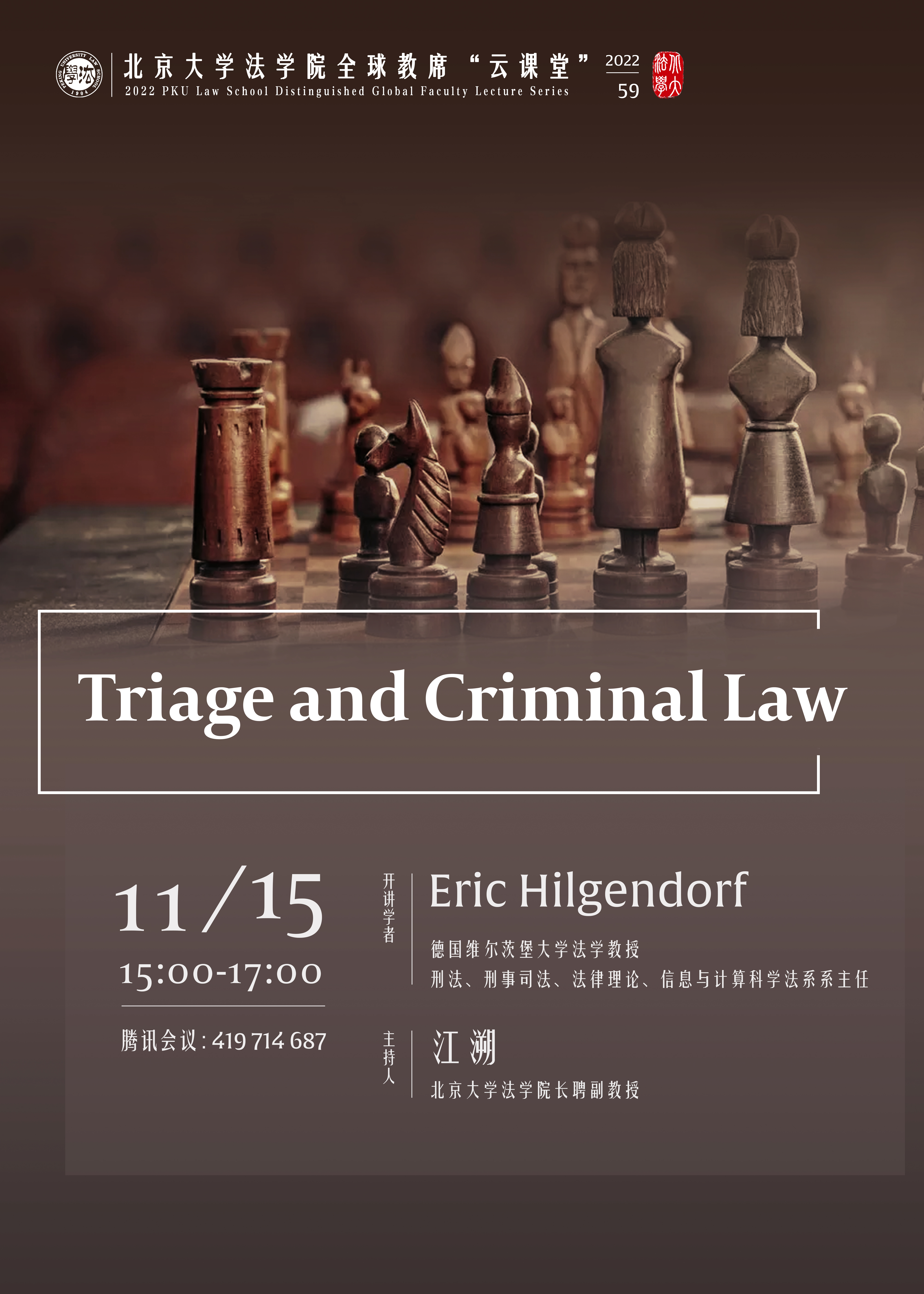Speaker: Prof. Eric Hilgendorf, University of Würzburg
Host: Prof. Jiang Su, Peking University
Time: 15:00-17:00 pm, November 15 (Tuesday), 2022, GMT+8
Venue: Tecent Meeting ID: 419 714 687
Abstract:
One of the major criminal law issues raised by the Corona pandemic is the question of the admissibility of triage. This is the decision as to which person should be treated in a medical emergency. In the German discussion, a distinction is usually made between ex-post and ex-ante triage. Ex-post triage is inadmissible, while ex-ante triage may be permissible under certain conditions. The lecture will present the problem and analyze the main arguments of the prevailing opinion.
Biography:
Eric Hilgendorf holds a degree in Philosophy, Modern History, and Law from the University of Tübingen (BA/MA equivalent). In 1997 he was appointed Professor of Criminal Law (and related fields) at the University of Constance and later elected Dean of the Law Faculty there. In 2001 he moved to the University of Würzburg and became the Chair of the Department of Criminal Law, Criminal Justice, Legal Theory, Information and Computer Science Law. His fields of expertise and interest also include medical criminal law and bioethics. In 2010, Hilgendorf founded the "Forschungsstelle Robotrecht", a well-known research centre addressing legal issues related to autonomous systems in industrial processes, transport and private life. Since 2013, he is head of the pan-European legal research group of AdaptIVe, an EU-funded research project on the development of autonomous vehicles. In 2016, he was appointed by Federal Minister of Transport and Digital Infrastructure Alexander Dobrindt to serve on the German government's Ethics Commission on Autonomous Driving. Since 2019, Hilgendorf is Co-Director of the newly founded Bavarian Research Institute for Digital Transformation (BIDT). Moreover, he is member of the European High Level Expert Group on Artificial Intelligence.
Hilgendorf is the author of multiple books, essays, and annotations. Many of his works have been translated into other languages such as English, Spanish, Portuguese, Chinese, Japanese, Korean, Turkish and Greek. Among his works are: Strafgesetzbuch: Lehr- und Praxiskommentar(2020),Die Deutsche Strafrechtswissenschaft : Tradition und Moderne(2015),Handbook of German Criminal Law (2018), Casebook on Criminal Law: General and Specific Sections (2008).
Source: Peking University Law School
